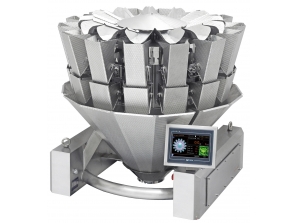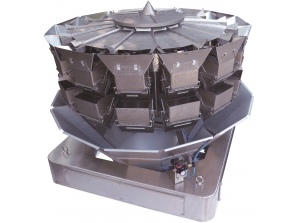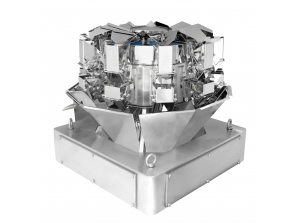- Unlocking 92% More Efficiency: Discover the Future of Quantum AI
- The Basics of Quantum Computing
- Applications of Quantum Computing
- The Role of AI in Quantum Technologies
- Understanding Quantum AI
- The Benefits of Quantum AI
- Challenges in Implementing Quantum AI
- The Future Landscape of Quantum AI
- Conclusion of Quantum AI’s Potential
Unlocking 92% More Efficiency: Discover the Future of Quantum AI
As we stand on the precipice of a new technological era, the concept of Quantum AI is emerging as a key driver for unprecedented advancements in efficiency and capability. This fusion of quantum computing principles with artificial intelligence isn’t merely captivating; it represents a groundbreaking transformation poised to revolutionize industries across the globe. The potential to unlock 92% more efficiency could redefine how we approach problem-solving and decision-making in multiple domains, from healthcare to finance and beyond.
At its core, Quantum AI leverages the principles of quantum mechanics, such as superposition and entanglement, to enhance computational power dramatically. While traditional AI depends on classical computers to process information, **quantum AI** uses qubits, which can exist in multiple states simultaneously, allowing for faster and more complex calculations. By combining the strengths of both fields, we are not only enhancing AI’s predictive capabilities but also expanding the horizons of what we thought was achievable with technology.
Moreover, exploring this fusion opens up new avenues for research, development, and implementation. As more organizations begin to understand and harness the potential of Quantum AI, the possibility of creating intelligent systems that can solve previously intractable problems becomes more tangible. The journey towards realizing this potential is just beginning, and the implications are profound.
The Basics of Quantum Computing
Before delving deeper into the intersection of Quantum AI, it is essential to understand the basics of quantum computing. This revolutionary technology operates on principles of quantum mechanics, which govern the behaviors of subatomic particles. Unlike classical bits that represent either a 0 or a 1, quantum bits, or qubits, can represent both 0 and 1 simultaneously due to a phenomenon known as superposition. This characteristic enables quantum computers to perform calculations at astonishing speeds, far beyond the capabilities of traditional systems.
Furthermore, qubits can become entangled, meaning the state of one qubit can depend on the state of another, no matter how far apart they are. This property can lead to faster processing speeds and complex problem-solving abilities that were previously unimaginable. To visualize the advantages of quantum computing, consider the following table highlighting the key differences:
| Data Representation | Bits (0 or 1) | Qubits (0, 1, or both) |
| Processing Speed | Linear scaling | Exponential scaling |
| Complex Problem Solving | Limited | Extensive |
| Power Consumption | Higher | Potentially lower |
Applications of Quantum Computing
The applications of quantum computing are vast and diverse, with significant implications across multiple fields. For instance, industries such as pharmaceuticals utilize quantum computing to enhance their drug discovery processes by simulating molecular interactions at quantum levels. This speeds up the identification of potential drug candidates and reduces costs associated with traditional approaches.
Moreover, quantum computing exhibits great promise in areas such as cryptography, where it can break traditional encryption methods. Financial sectors can also benefit by optimizing portfolios and assessing risk with greater accuracy than ever before. As the technology matures, we are likely to witness a myriad of other groundbreaking applications emerging.
The Role of AI in Quantum Technologies
Artificial intelligence plays a crucial role in the development and enhancement of quantum technologies. By utilizing AI algorithms, researchers can rapidly assess quantum experiments, optimize error correction, and improve qubit performance. AI helps streamline the design and implementation process, making it more manageable to harness the power of quantum computing.
Also, machine learning models benefit significantly from quantum computing capabilities. The combination allows AI solutions to process extensive datasets more efficiently, leading to better predictive models. The intersection of these technologies amplifies their effectiveness, showcasing the symbiotic relationship between AI and quantum mechanics.
Understanding Quantum AI
With a firm grasp on quantum computing fundamentals, we can now explore the essence of Quantum AI. This computational paradigm synergizes quantum computing’s enhanced processing power with advanced AI algorithms to create systems that can analyze and interpret complex data sets at unparalleled speeds. By integrating stochastic and probabilistic models, Quantum AI provides unique insights that would be unfeasible with classical methods.
The potential applications for Quantum AI span numerous sectors, including healthcare, where it might assist in diagnosing diseases and personalizing treatment plans based on vast amounts of individual patient data. As organizations begin to embrace this technology, the importance of understanding its functionalities and capabilities becomes crucial for maintaining a competitive edge.
- Healthcare: Enhancing diagnostic accuracy through data analysis
- Finance: Optimizing investment strategies and risk assessments
- Logistics: Streamlining supply chains and inventory management
- Energy: Improving resource allocation and sustainable practices
The Benefits of Quantum AI
The benefits of integrating quantum computing with AI are profound and substantial. First and foremost is the ability to process vast amounts of data at accelerated speeds, which can lead to innovative solutions across numerous fields. As organizations integrate Quantum AI, they gain competitive advantages, ultimately leading to increased efficiency and cost savings.
Additionally, Quantum AI promotes more accurate predictive analytics, which can help in making more informed decisions. This sensitivity to vast amounts of data allows for real-time adaptations in dynamic environments, whether in financial markets or healthcare settings. The transformative potential of this technology holds great promise for enhancing operational workflows.
Challenges in Implementing Quantum AI
While the promise of Quantum AI is significant, its implementation is not without challenges. One primary obstacle is the current state of quantum computing technology, which is still in its infancy. Issues such as qubit coherence and error rates present hurdles that need to be overcome for practical application.
Moreover, there is a necessity for specialized skills and knowledge when working with these technologies. The shortage of professionals adept in both quantum computing and AI limits the potential for widespread adoption. Addressing these challenges is crucial for unlocking the full potential of Quantum AI in the near future.
The Future Landscape of Quantum AI
As we look to the future, the implications of Quantum AI are nothing short of transformative. The continual evolution of quantum computing will undoubtedly propel AI into new realms of possibility. Institutions worldwide are investing heavily in research and development, with hopes of discovering novel applications and technologies that can maximize the efficiency and effectiveness of quantum algorithms.
In anticipation of this future landscape, many organizations are already formulating strategies to prepare for the inevitable shift towards Quantum AI. Early adopters will likely set the standard and benefit from the unparalleled advancements that come with integrating these technologies. As we delve deeper into this era, the continuous quest for innovation will reshape numerous aspects of our lives.
- Ongoing Research and Development: Continued exploration of practical applications
- Strategic Partnerships: Collaborations between tech companies and academic institutions
- Education and Training Programs: Preparing the workforce for the future
Conclusion of Quantum AI’s Potential
In conclusion, the intersection of quantum computing and artificial intelligence through Quantum AI holds immense potential to transform industries and enhance efficiency dramatically. By unlocking 92% more efficiency, this innovative technology promises to change how we approach problems and create solutions across various fields.
As we continue to explore the implications and applications of Quantum AI, it is essential for organizations and professionals alike to stay informed and prepared for the profound changes ahead. Ultimately, this journey into the quantum realm is just beginning, and its trajectory will shape the future of technology and humanity.




